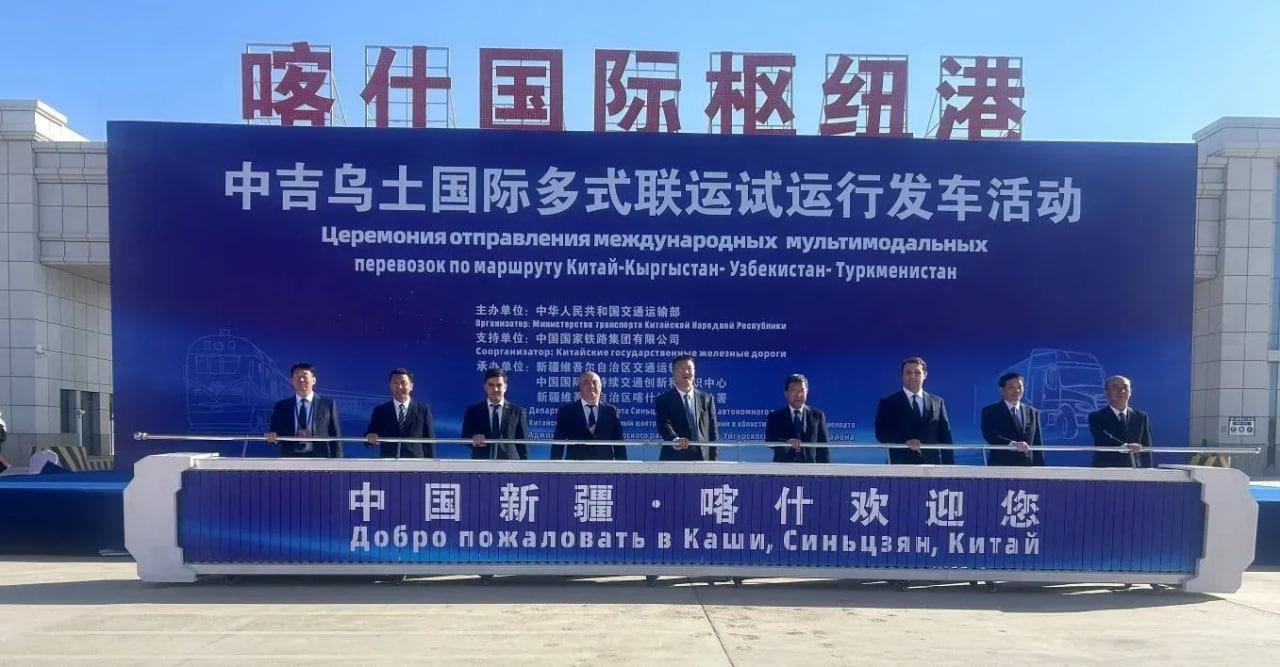SAAKASHVILI AND NAZARBAYEV TURN NEW PAGE IN KAZAKH-GEORGIAN RELATIONS
SAAKASHVILI AND NAZARBAYEV TURN NEW PAGE IN KAZAKH-GEORGIAN RELATIONS
Georgian President Mikheil Saakashvili made his first visit to Kazakhstan on March 31, marking a new, post-Shevardnadze era in Kazakh-Georgian relations. The young and beaming Saakashvili, a child of the Rose Revolution, sitting together with his aging Kazakh counterpart, a lingering shadow from the communist past, would make odd bedfellows in other circumstances, but in Astana both leaders demonstrated common views on key issues related to security, economics, and political reform.
Saakashvili, whose markedly pro-American stance had puzzled the Moscow-oriented policymakers in Kazakhstan, made another unexpected overture prior to and during his trip to Astana. The Georgian president profusely lauded the Kazakh “economic miracle” under Nazarbayev, whom he called “a very wise person who has his own vision for many ongoing processes” (Panorama, March 25).
Carefully sidestepping the thorny subject of regime change in Georgia, Ukraine, and Kyrgyzstan — the last particularly painful for the Kazakh leader — discussion focused chiefly on trade relations, business ties, and opportunities for investment in the recovering Georgian economy. The talks mainly centered on cooperation in the oil and gas sector. Speaking at a Kazakh-Georgian business forum in Astana, Kazakhstan’s Prime Minister Daniyal Akhmetov reaffirmed his government’s readiness to discuss a potential oil-transport joint venture with Georgia. He added that the efficient operation of the Baku-Tbilisi-Ceyhan pipeline plays a key role in transporting hydrocarbons.
One component of developing a Trans-Caucasus transport corridor envisages the construction of an oil pipeline along the Caspian seabed. However, that costly venture remains on paper so far. More realistic at the moment are Black Sea shipments of Kazakh oil through the Georgian seaport of Poti, to Romania’s Constanta seaport, and onward to European markets.
For Kazakhstan the Black Sea route is the shortest way to access energy-intensive European markets. If the agreements reached in Astana are successfully implemented, Kazakhstan would channel huge investments to update the Georgian seaport infrastructure and boost the Georgian economy through transit tariffs for shipments of its oil through Georgian seaports. The new maritime route is expected to also increase the volume of cargo shipped through the Kazakh seaport of Aktau. Kazakhstan also hopes to export its natural gas to Georgia (Kazakhstanskaya pravda, April 1).
Saakashvili spared no words in praising the pace of economic reforms in Kazakhstan in anticipation of wide-scale privatization in his own country. In fact, the Georgian President presented himself as a modest disciple who had come to Kazakhstan not to flaunt the fruits of the Rose Revolution but rather to learn from Kazakh experience with social and economic reform. These flattering words, much to the delight of Nazarbayev, took the wind out of the Kazakh opposition’s sails.
Saakashvili visibly cheered President Nazarbayev when he said, “Events in Kyrgyzstan are hardly possible in Kazakhstan, where people prefer peaceful economic reforms to revolutionary sentiments.” According to him, any political structure should be based on a solid economic foundation (Kazakhstanskaya pravda, April 1). These views fully harmonize with Nazarbayev’s approach to political reforms. In his public speeches Nazarbayev always stresses the precedence of economic growth over political renewal. At the same time, the half-hearted and pre-calculated steps in political and economic areas in Kazakhstan are no comparison to the radical moves made by Saakashvili to root out corruption among high-ranking officials and to impose strict control over budgetary spending.
Saakashvili made an impression on Astana as a pragmatic leader. He called on Kazakh businesspeople to invest in the Georgian economy, personally guaranteeing the safety of their investment. Some of the documents signed during Saakashvili’s visit, such as the anti-terror agreement, seem to be vague. Talks on this issue were held previously “in a narrow format” and then in a larger circle with the participants of the talks (Interfax Kazakhstan, March 31). Despite a mutual desire to expand bilateral cooperation to the security sphere, Georgia and Kazakhstan have little to share in fighting terrorism. Kazakhstan has good reason to be preoccupied with ensuring security along the Kyrgyz border, fearing the infiltration of Islamic extremists and criminal elements set free after the riots in Kyrgyzstan. Georgia has enough to handle with the unguarded border with Dagestan and Chechnya.
But the Kazakh-Georgian rapprochement comes at a time when, in the wake of revolutions in Ukraine, Georgia, and Kyrgyzstan, the geopolitical balance of power in the Commonwealth of Independent States is changing and the very survival of this highly bureaucratized and inefficient structure seems uncertain. While Russia increasingly distances itself from the European Union, OSCE, and other international organizations, Georgia, a WTO member and pro-Western state, could help Kazakhstan integrate with the international community (Panorama, March 18).
Partnership with Kazakhstan fully corresponds to Saakashvili’s personal political beliefs. When asked to explain his reasons for visiting Kazakhstan, the Georgian president replied, “Global politics is one of the main instruments by which Georgia can protect itself and improve its position. Georgia should be part of European Union. We want to respect Russia, and we want Russia to respect us” (Imedi TV, March 29). That is the goal that really brings Georgia and Kazakhstan together.


